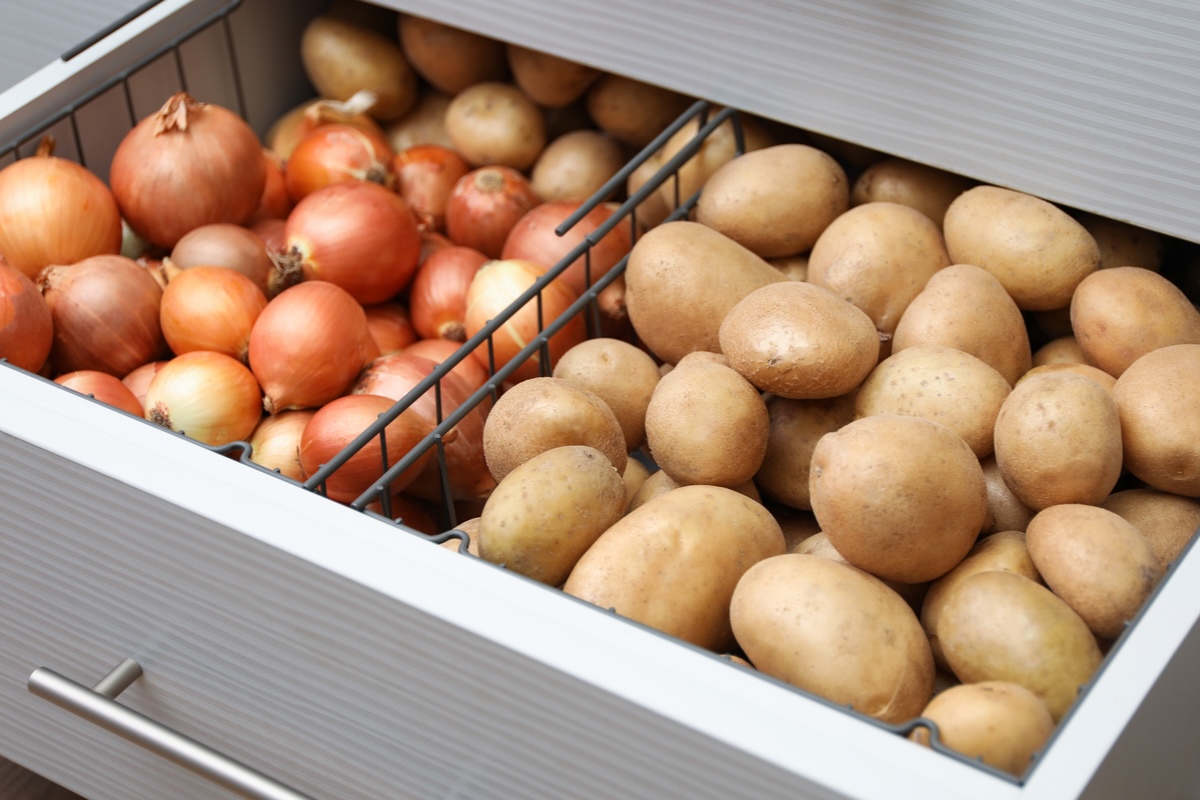

Articles
How To Store Potatoes And Onions
Modified: May 6, 2024
Learn effective ways to store potatoes and onions in this informative article. Keep your produce fresh and extend their shelf life with these practical tips.
(Many of the links in this article redirect to a specific reviewed product. Your purchase of these products through affiliate links helps to generate commission for Storables.com, at no extra cost. Learn more)
Introduction
When it comes to storing potatoes and onions, many people are unaware of the proper methods to ensure longevity and freshness. These versatile and commonly used vegetables can easily spoil if not stored correctly, resulting in wasted food and money.
Proper storage of potatoes and onions not only helps preserve their quality but also extends their shelf life, allowing you to enjoy these nutritious ingredients for longer periods. In this article, we will explore the best methods for storing potatoes and onions, as well as provide tips to help you maintain their freshness.
By understanding the importance of proper storage and implementing the right techniques, you can avoid the disappointment of finding rotting or sprouting potatoes and onions in your pantry. So, let’s dive into the world of potato and onion storage and discover how to keep these versatile staples in optimal condition.
Key Takeaways:
- Proper storage of potatoes and onions is essential to maintain freshness and prevent waste. Choose the right storage method, inspect regularly, and follow long-term storage tips to enjoy flavorful and nutritious produce for longer.
- Keep potatoes in a cool, dark environment and onions in a dry, well-ventilated space. Regularly check for spoilage signs, store them separately, and remove any spoiled vegetables promptly to extend their shelf life.
Read also: 12 Best Potato And Onion Storage For 2025
Choosing the Right Storage Method
Before we delve into the specific storage techniques for potatoes and onions, it’s crucial to understand the importance of choosing the right storage method. Different factors, such as temperature, humidity, and ventilation, can significantly impact the shelf life and quality of these vegetables.
While both potatoes and onions can be stored at room temperature for short periods, they require different conditions for long-term storage. Potatoes prefer cool and dark environments with moderate humidity, while onions thrive in dry and well-ventilated spaces.
One essential consideration for both vegetables is to keep them away from light. Exposure to light can cause potatoes to turn green, resulting in the development of a toxic compound called solanine. Onions, on the other hand, can sprout prematurely if they are exposed to light.
When choosing a storage area for your potatoes and onions, opt for a cool, dry, and well-ventilated space. Avoid storing them in plastic bags, as this can restrict airflow and lead to the accumulation of moisture, which promotes decay. Instead, use breathable containers or burlap sacks that allow air circulation.
Additionally, keep in mind the specific requirements for each vegetable. Potatoes prefer temperatures between 45°F and 50°F (7°C and 10°C), while onions do well in slightly cooler conditions around 32°F to 40°F (0°C to 4°C). Maintaining the right temperature and humidity levels will help prolong the shelf life of both potatoes and onions.
Now that we understand the importance of choosing the right storage method, let’s explore specific techniques for storing potatoes and onions to maintain their freshness and quality.
Storing Potatoes
Potatoes are a pantry staple that can be stored for an extended period if kept in the right conditions. Here are some guidelines for storing potatoes:
- Clean and dry: Before storing potatoes, make sure to clean them gently using a soft brush or cloth to remove any dirt. Allow them to dry completely before storing, as moisture can promote rotting.
- Choose the right container: Opt for a breathable container such as a mesh or wire basket, a paper bag, or a burlap sack. Avoid using plastic bags as they can trap moisture and lead to spoilage.
- Dark and cool environment: Find a cool, dry, and dark place to store your potatoes. Avoid storing them in the refrigerator, as the cold temperature can convert starches into sugars and alter the taste and texture.
- Avoid exposure to light: Light can cause potatoes to turn green and develop a bitter taste. Keep them away from direct sunlight or artificial light sources.
- Avoid moisture: Moisture can accelerate decay, so it’s essential to maintain a dry environment. Check regularly for any signs of moisture build-up and remove any damp potatoes.
- Inspect regularly: Periodically check your stored potatoes for any signs of spoilage or sprouting. Remove any rotten or sprouted potatoes to prevent them from affecting the others.
By following these simple steps, you can ensure that your potatoes stay fresh and usable for weeks or even months. Proper storage helps preserve their texture and flavor, allowing you to enjoy delicious potato dishes whenever you please.
Storing Onions
Onions are a versatile ingredient that adds flavor to numerous dishes. To maximize their shelf life and keep them fresh, proper storage is crucial. Here are some key tips for storing onions:
- Cure the onions: Before storing, allow the onions to dry out for a few weeks. Spread them out in a single layer in a well-ventilated area with low humidity. This process helps the outer layer of the onion dry and creates a protective layer.
- Choose a dry and well-ventilated area: Find a cool, dry, and well-ventilated spot to store your onions. They need good airflow to prevent moisture buildup, which can lead to rotting. Avoid areas with high humidity, such as the pantry or refrigerator.
- Separate and space: Store onions in a way that allows air circulation. Avoid overcrowding or piling them on top of each other, as this can lead to bruising and faster spoilage.
- Avoid exposure to light: Like potatoes, onions should be kept away from direct light. Exposure to light can stimulate premature sprouting. Store them in a dark pantry or in a paper bag to shield them from light.
- Check for spoilage: Regularly inspect your stored onions for any signs of soft spots, mold, or sprouting. Remove any spoiled onions promptly to prevent them from spreading decay to the others.
- Store away from certain foods: Onions release gases that can accelerate the spoilage of certain foods, such as potatoes and apples. Ensure that you store onions separately to avoid any negative effects on other produce.
By following these guidelines, you can extend the shelf life of your onions and maintain their freshness and flavor for a longer period. Proper storage ensures that you always have onions on hand to enhance the taste of your favorite recipes.
Store potatoes in a cool, dark place with good ventilation to prevent sprouting and rotting. Onions should be stored in a cool, dry, and well-ventilated area, away from light and moisture to prevent spoilage.
Tips for Long-Term Storage
To further extend the shelf life of both potatoes and onions, here are some additional tips for long-term storage:
- Store separately: Keep potatoes and onions stored separately. The gases released by onions can accelerate the spoilage of potatoes, so it is best to store them in separate containers.
- Monitor temperature and humidity: Regularly check the storage area to ensure that the temperature and humidity levels remain within the recommended range for each vegetable. Fluctuations in temperature and humidity can affect their shelf life.
- Rotate your stock: When adding newly purchased potatoes and onions to your storage, make sure to use the older ones first. This practice helps to prevent spoilage and ensures that you are always consuming the oldest produce first.
- Avoid storing near ethylene-producing fruits: Ethylene is a natural gas produced by certain fruits like apples, bananas, and tomatoes, and it can accelerate the spoilage of both potatoes and onions. Keep them away from such fruits to maintain their freshness.
- Remove sprouts or damaged parts: Regularly inspect your stored potatoes and onions for any sprouts or damaged portions. Remove them immediately to prevent the spread of spoilage.
- Keep an eye on moisture: Moisture is the enemy of stored vegetables. Make sure the storage area remains dry, and remove any damp or rotting potatoes or onions promptly.
- Consider alternative storage methods: If you have a large quantity of potatoes or onions, you can explore other storage options, such as root cellars or cool basements that provide the ideal conditions for long-term storage.
By following these tips, you can significantly prolong the shelf life of your potatoes and onions, ensuring that you always have fresh and flavorful produce on hand.
Read more: How To Store Onions
Checking for Signs of Spoilage
Regularly inspecting your stored potatoes and onions is essential to ensure that they remain fresh and free from spoilage. Here are some signs to look out for to determine if your vegetables have spoiled:
- Mold: Mold growth on either potatoes or onions is a clear indication of spoilage. If you notice any fuzzy or discolored patches, discard the affected vegetables and check the surrounding ones for any signs of mold.
- Soft spots: Press gently on the surface of potatoes and onions. If you feel any soft or mushy areas, it likely indicates spoilage. Remove these spoiled vegetables to prevent the decay from spreading to others.
- Sprouting: Sprouting is a natural process for onions, but excessive sprouting can affect their taste and texture. Remove any onions with long green shoots emerging from the top as they are past their prime.
- Unpleasant odor: A strong, foul smell coming from your stored potatoes or onions is a sure sign of spoilage. If you detect any unpleasant odor, it’s best to discard the vegetables immediately.
- Discoloration: Potatoes that have turned green or onions that have developed dark spots or discoloration are likely spoiled. Discard these vegetables to prevent any potential health issues.
Regularly checking for signs of spoilage allows you to catch any issues early on and prevent the spread of decay to the rest of your stored vegetables.
Remember, when in doubt, it is always better to err on the side of caution and discard any questionable vegetables. Freshness and quality are key when it comes to enjoying delicious and nutritious potatoes and onions.
Conclusion
Properly storing potatoes and onions is crucial to maintain their freshness, prolong their shelf life, and prevent unnecessary waste. By following the guidelines outlined in this article, you can ensure that your stored potatoes and onions remain in optimal condition for an extended period.
Remember to choose the right storage method for each vegetable, considering factors such as temperature, humidity, and ventilation. Keeping potatoes in a cool, dark environment and onions in a dry, well-ventilated space are key to preserving their quality.
Regularly inspect your stored potatoes and onions for any signs of spoilage, such as mold, soft spots, sprouting, unpleasant odors, or discoloration. Promptly remove any spoiled vegetables to prevent the spread of decay.
Additionally, implementing tips for long-term storage, such as storing potatoes and onions separately, monitoring temperature and humidity, and rotating your stock, can further extend their shelf life.
By taking proper care of your potatoes and onions, you can avoid the frustration of finding spoiled or unusable vegetables, save money, and ensure that you always have fresh produce available for your culinary creations.
So, apply these storage techniques, keep an eye out for spoilage signs, and enjoy the benefits of flavorful and nutritious potatoes and onions whenever you need them!
Now that you've got a handle on keeping potatoes and onions at their best, why stop there? For all your veggies, mastering proper storage is key. Ready to step up your game? Dive into our guide on choosing the best vegetable storage options. And while you're optimizing your kitchen, don't forget about that pantry. A well-organized pantry closet not only makes cooking a breeze but also keeps everything neat and accessible. Check out our tips for effective pantry organization and transform your kitchen storage from chaotic to streamlined.
Frequently Asked Questions about How To Store Potatoes And Onions
Was this page helpful?
At Storables.com, we guarantee accurate and reliable information. Our content, validated by Expert Board Contributors, is crafted following stringent Editorial Policies. We're committed to providing you with well-researched, expert-backed insights for all your informational needs.
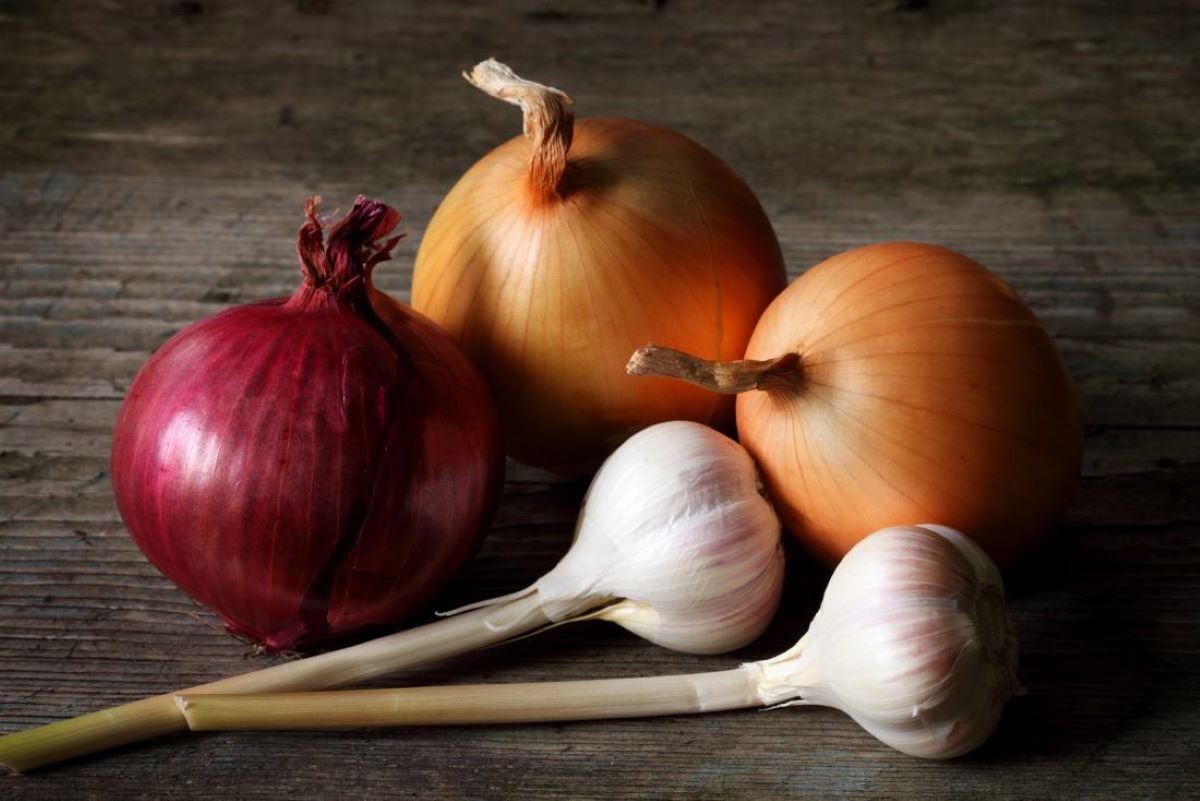
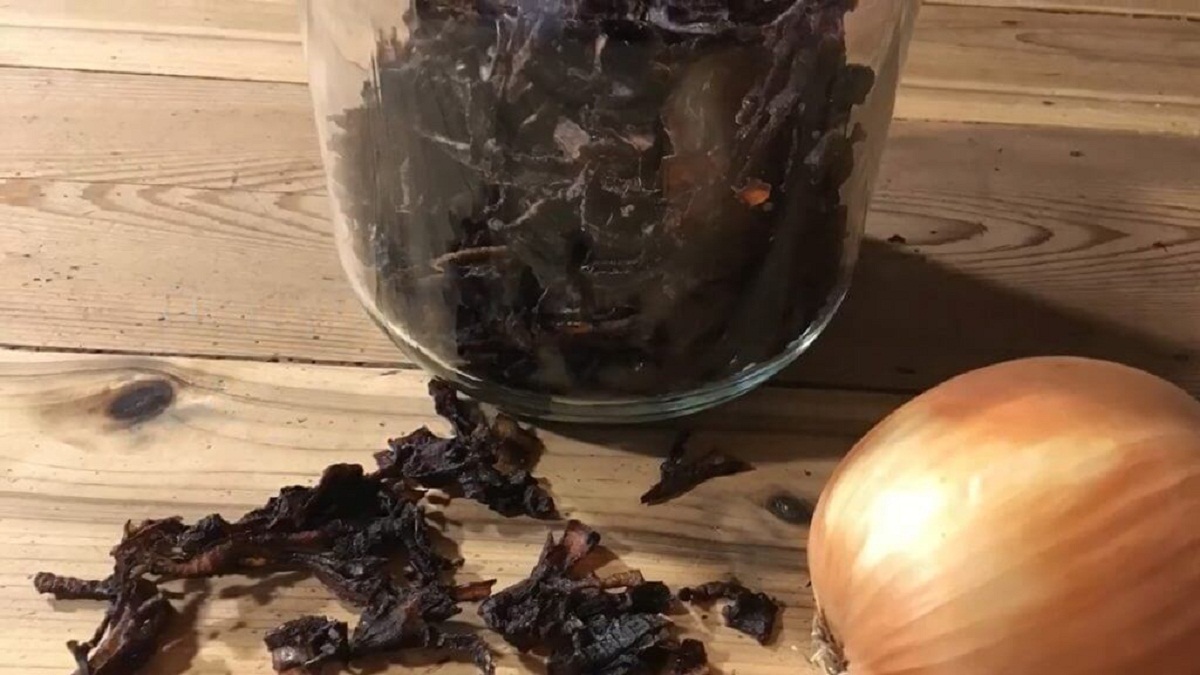
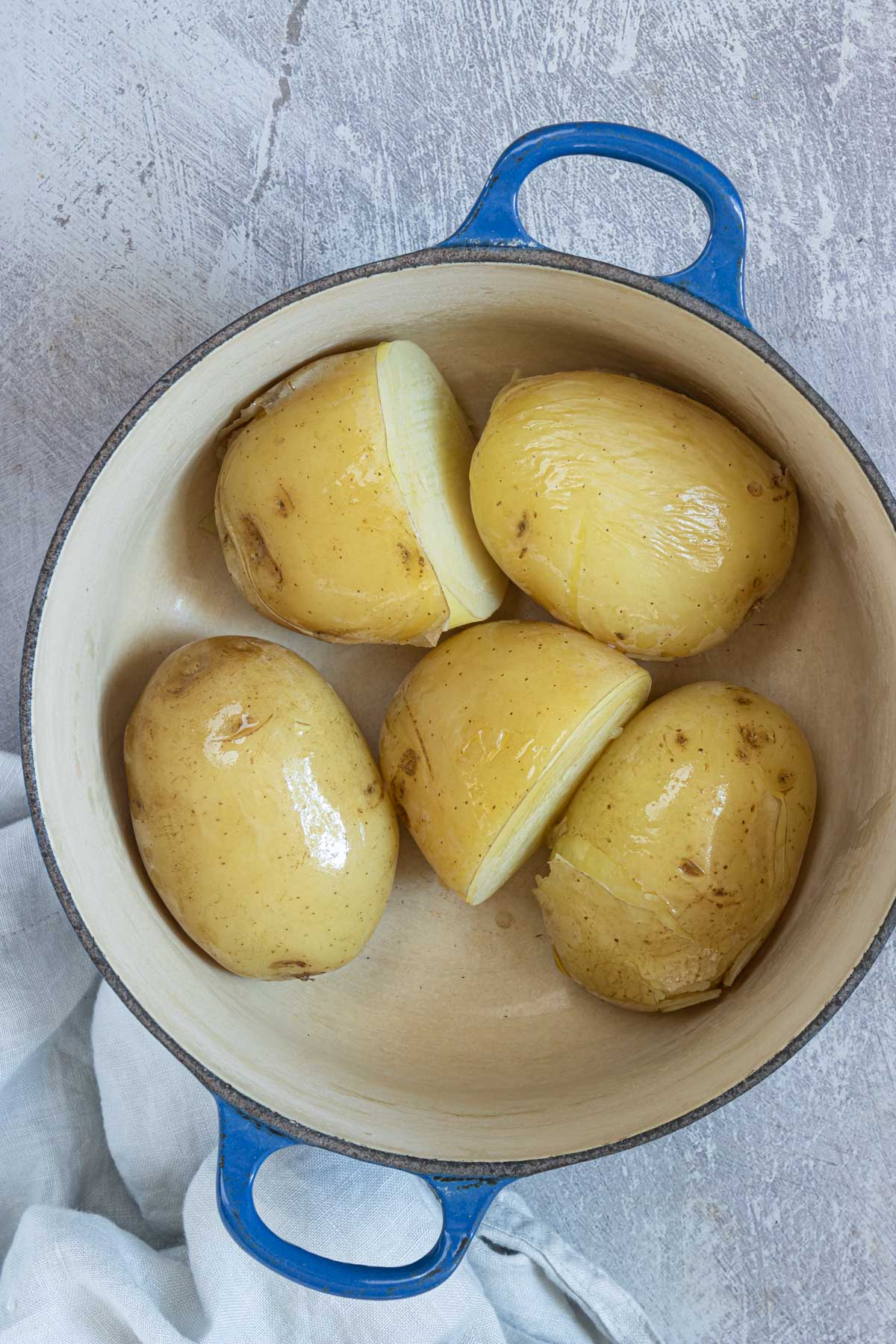
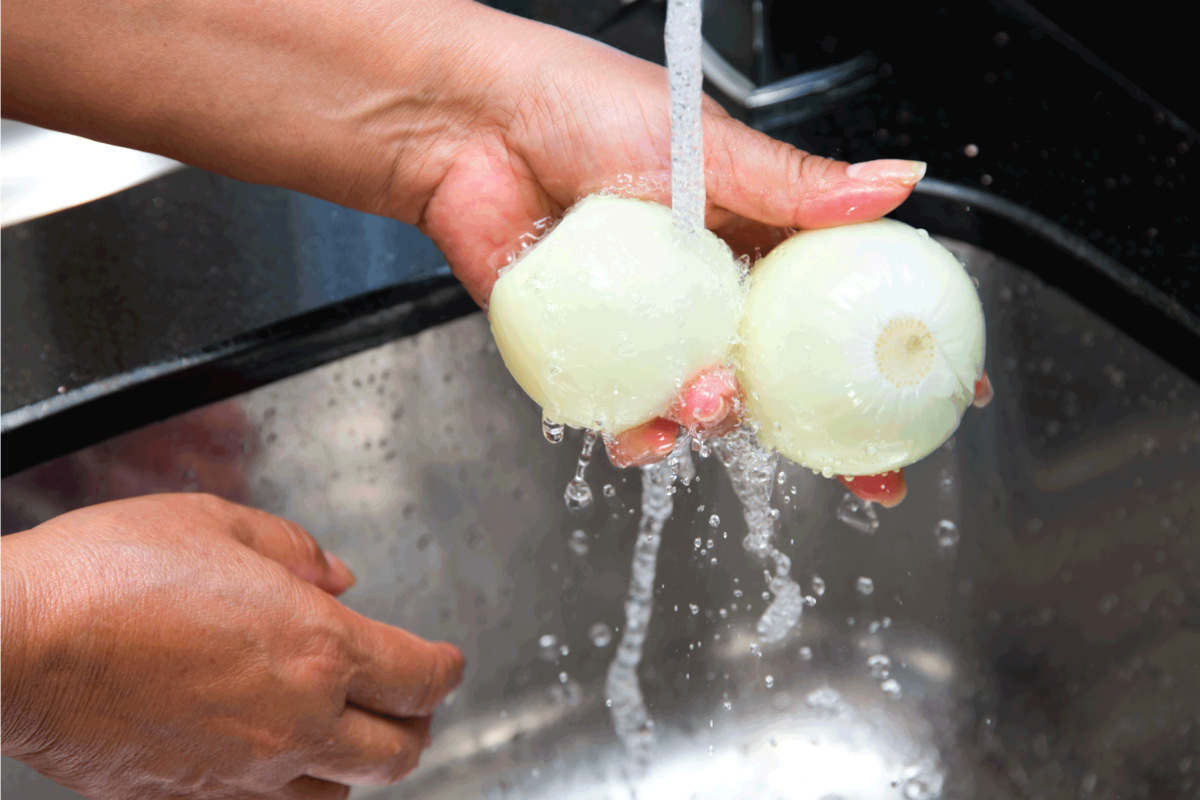
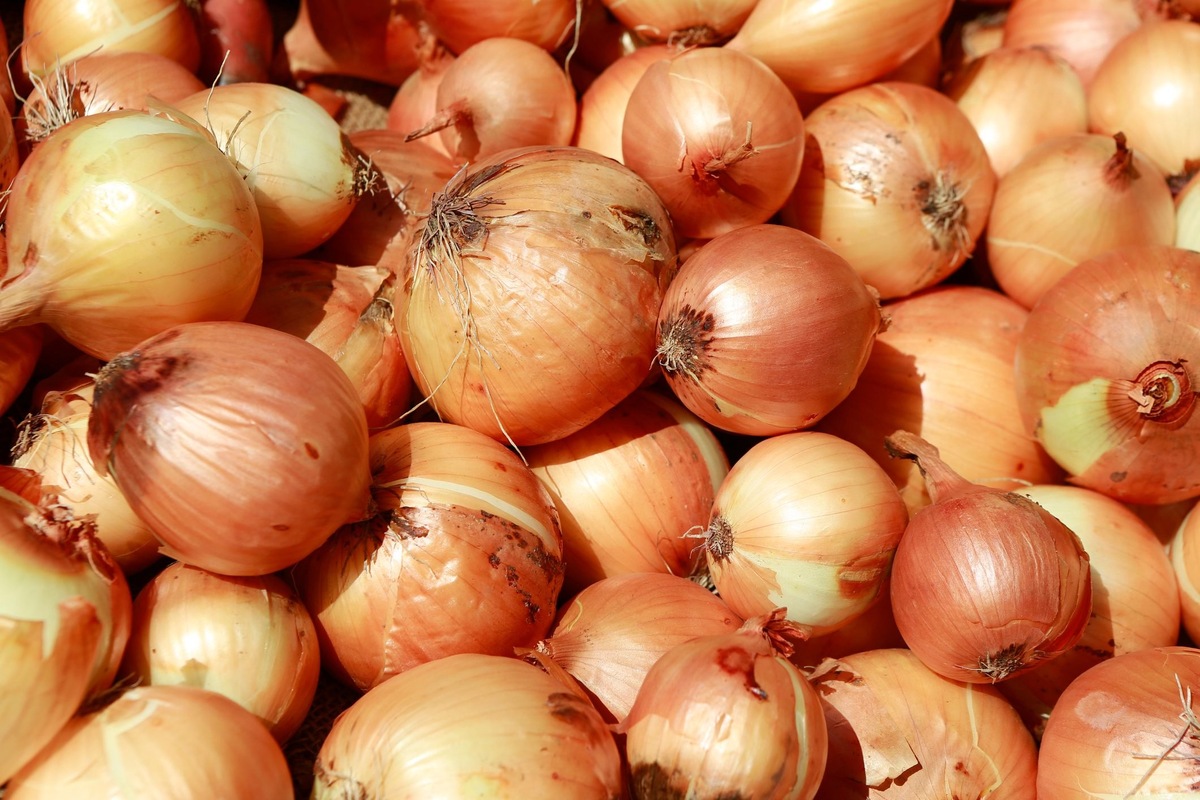
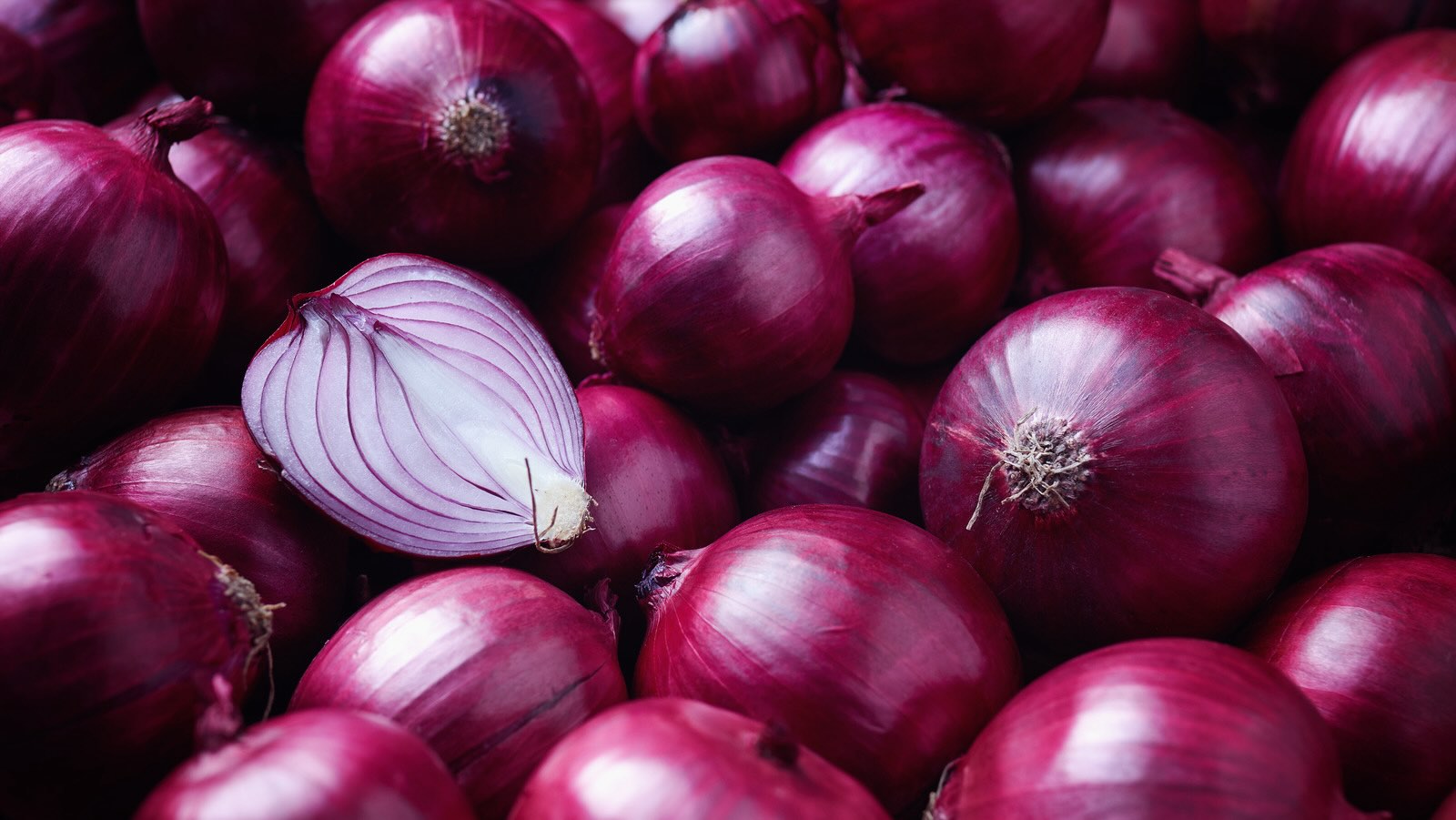
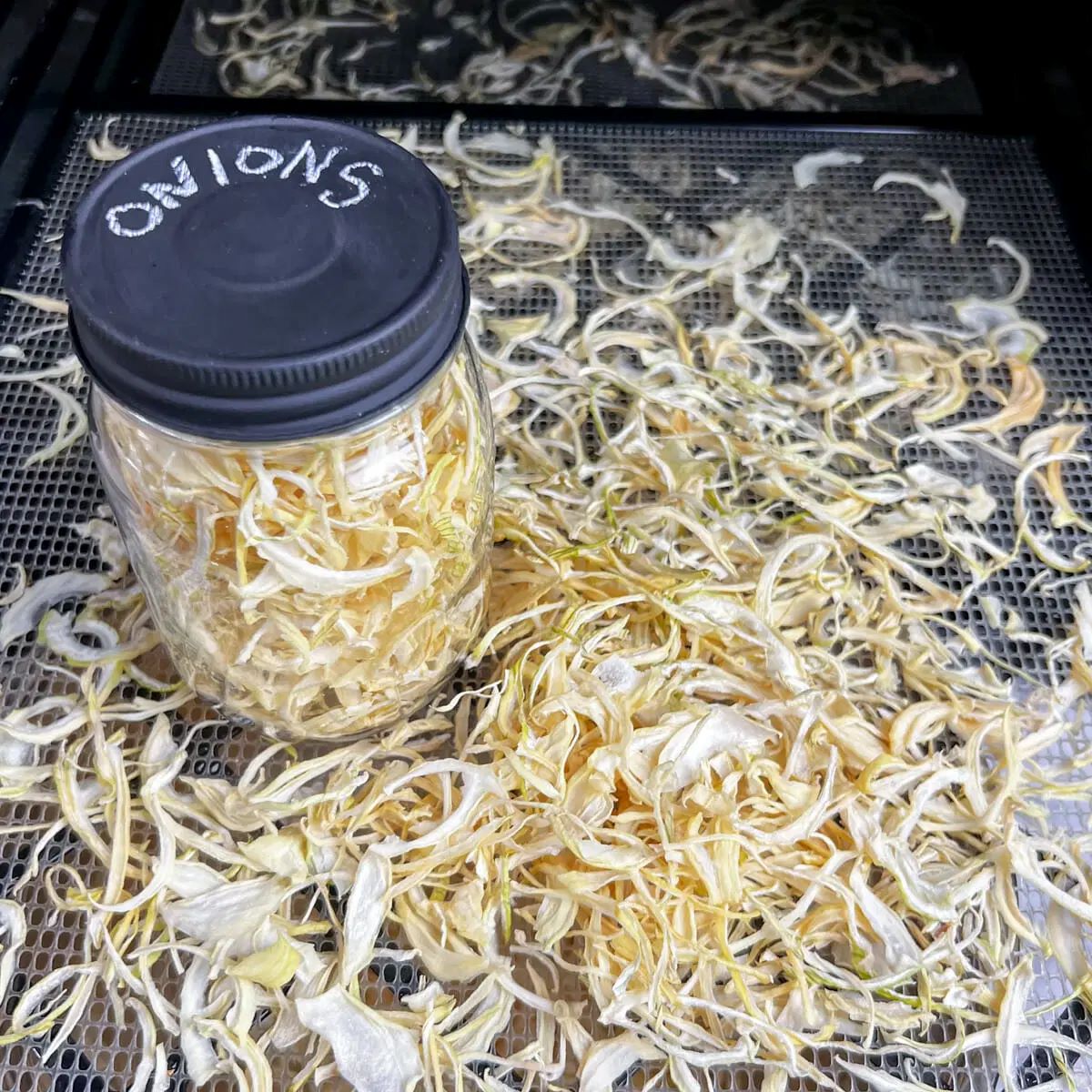
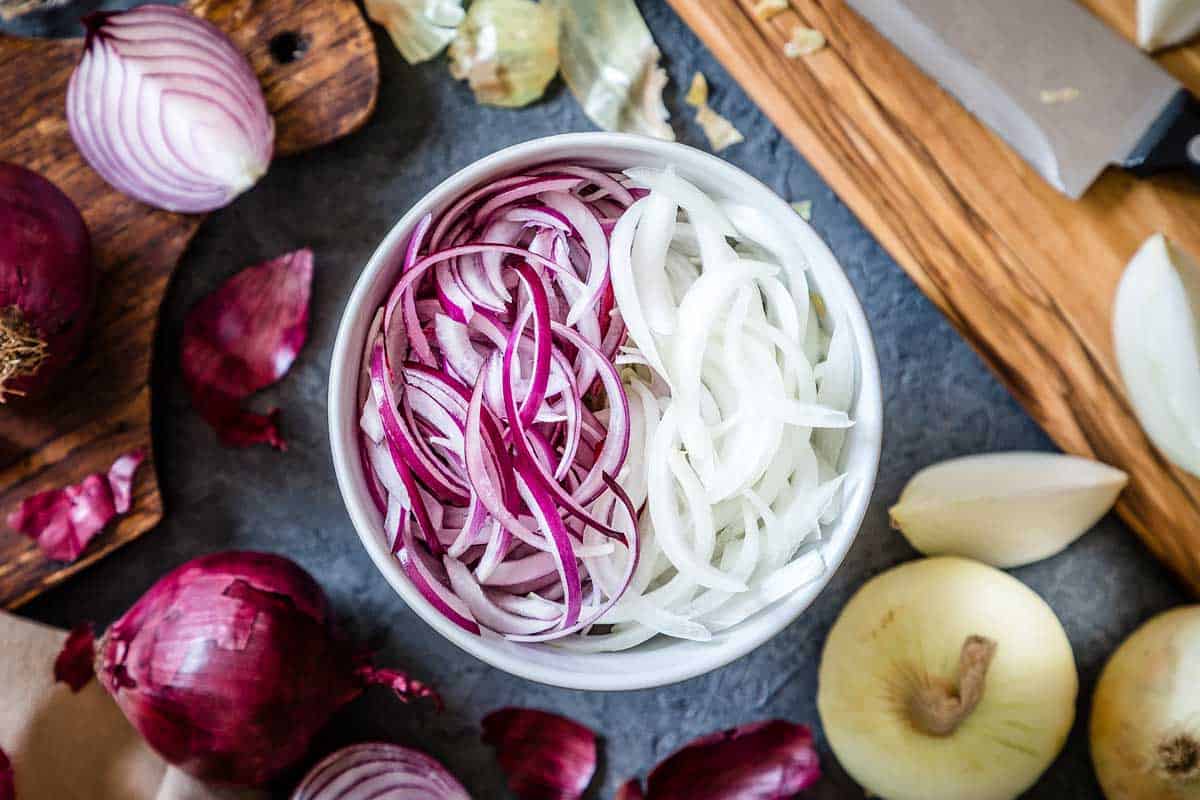
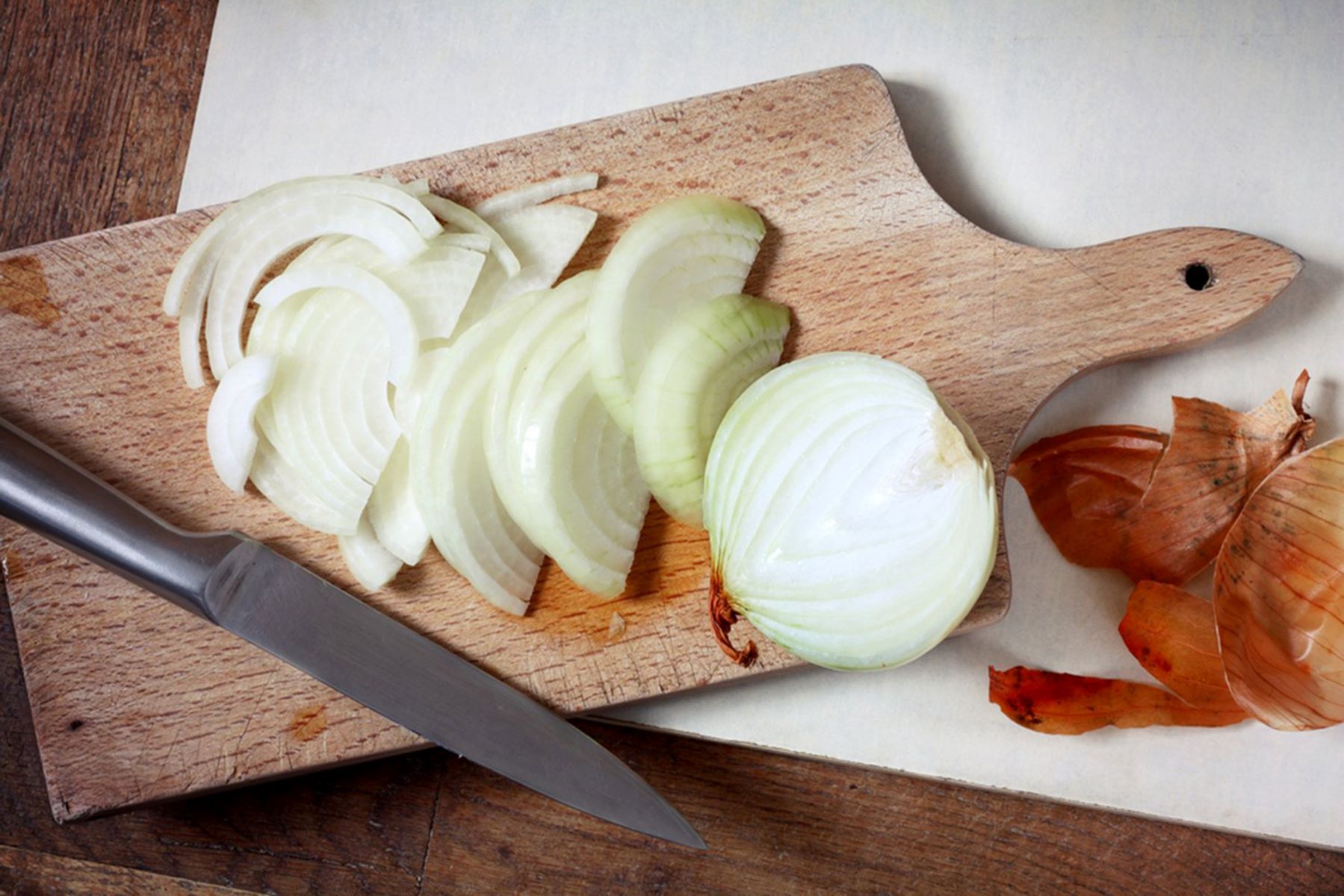
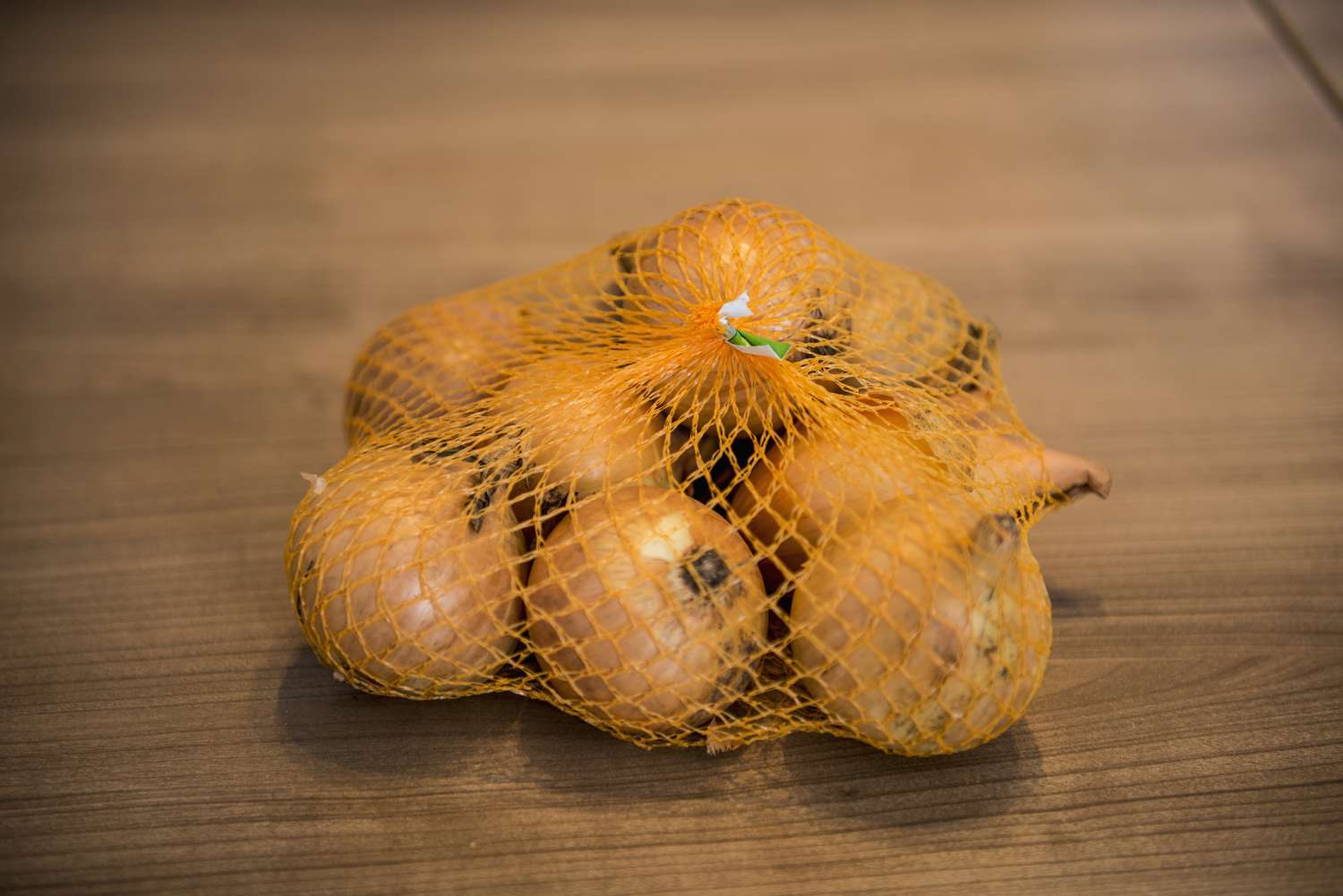
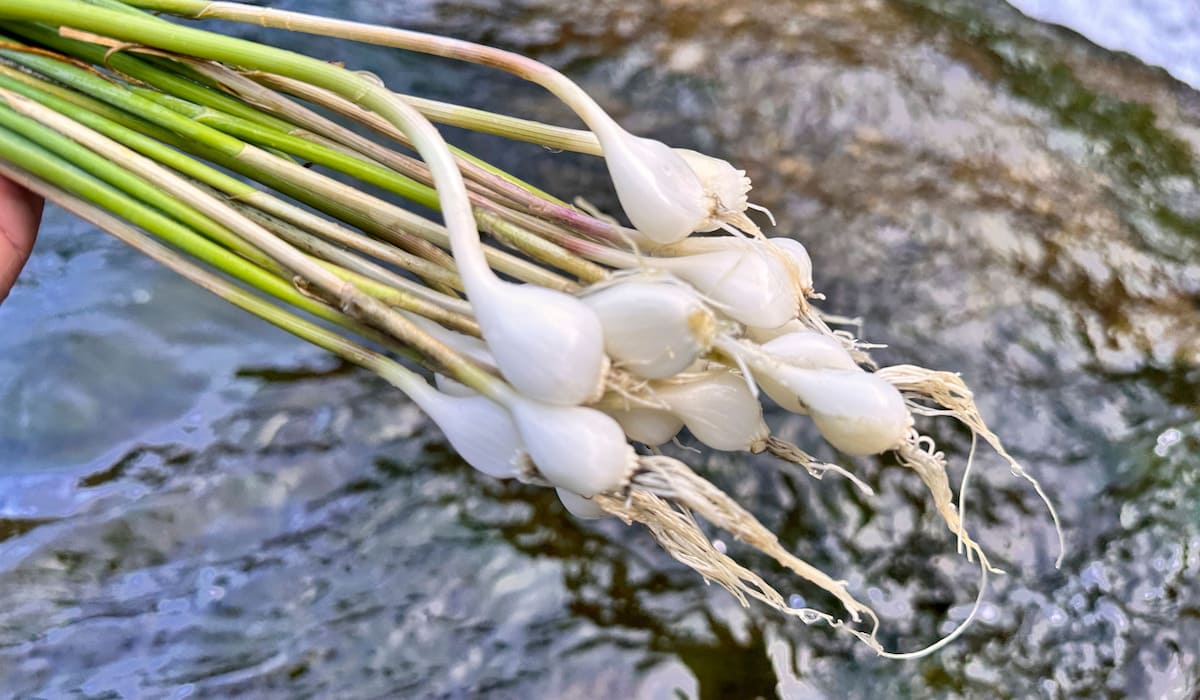
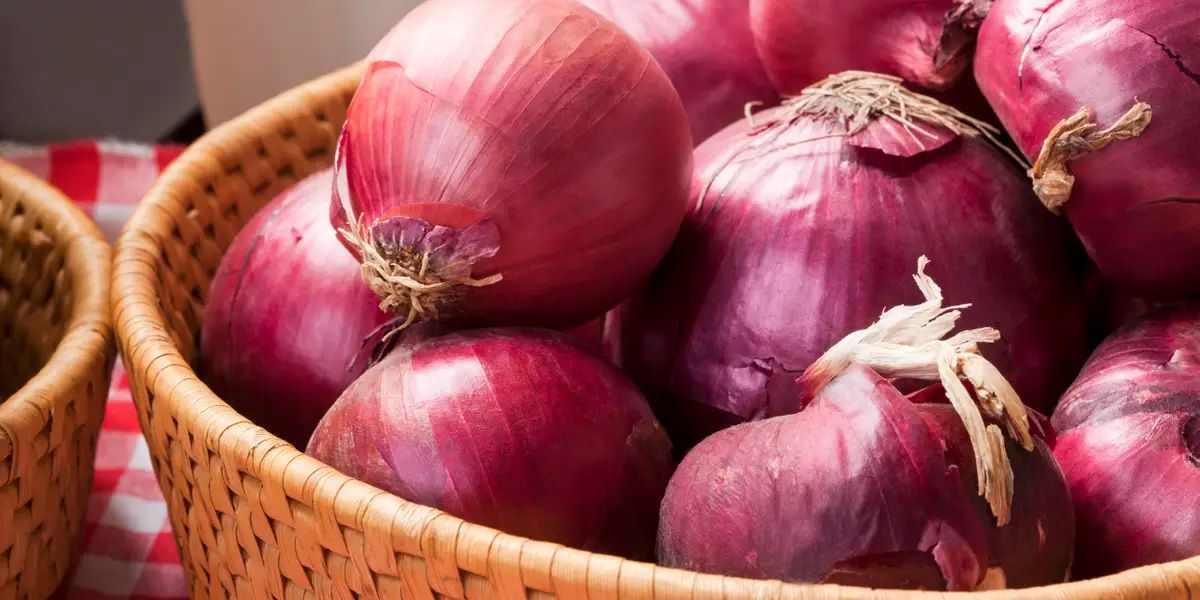
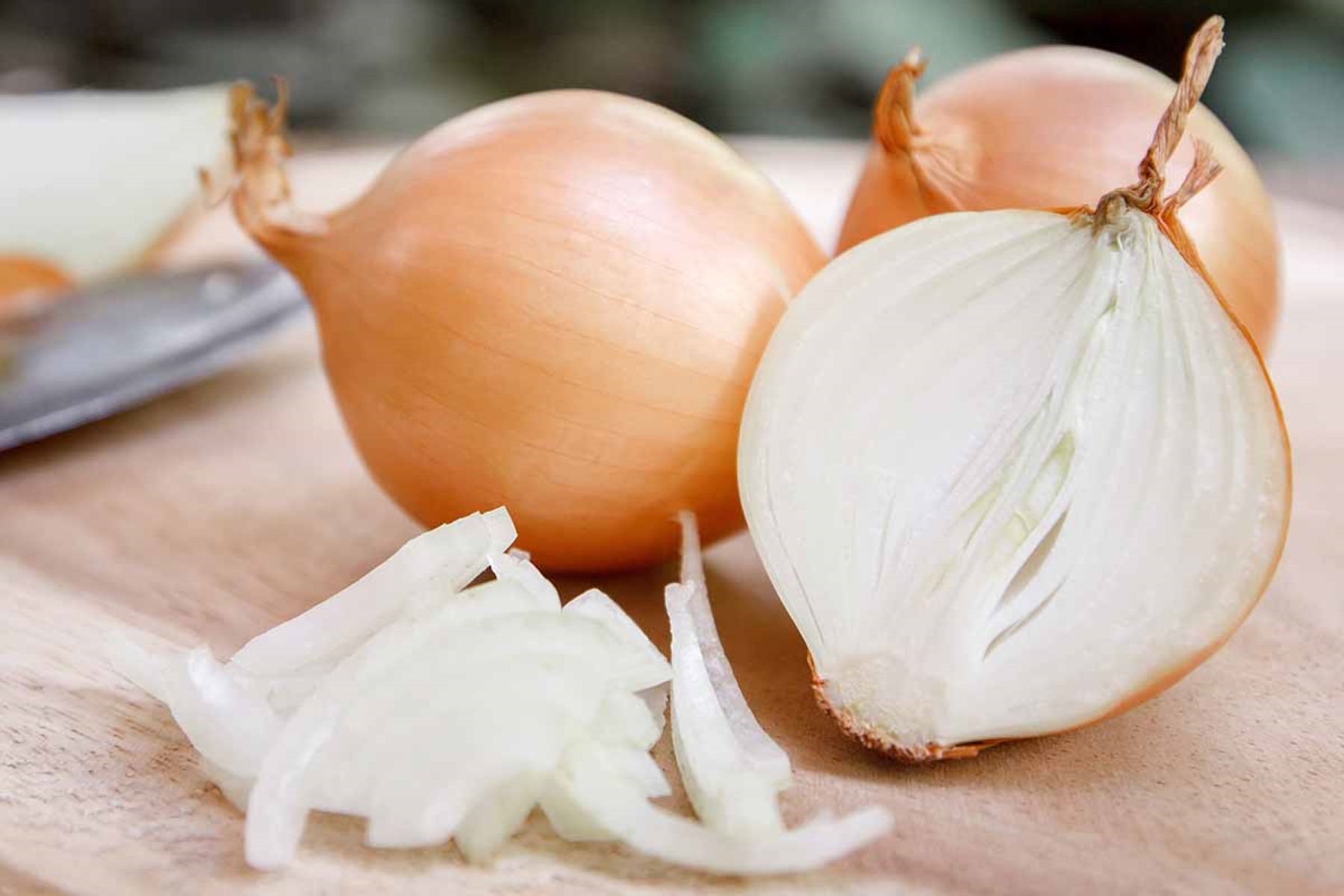
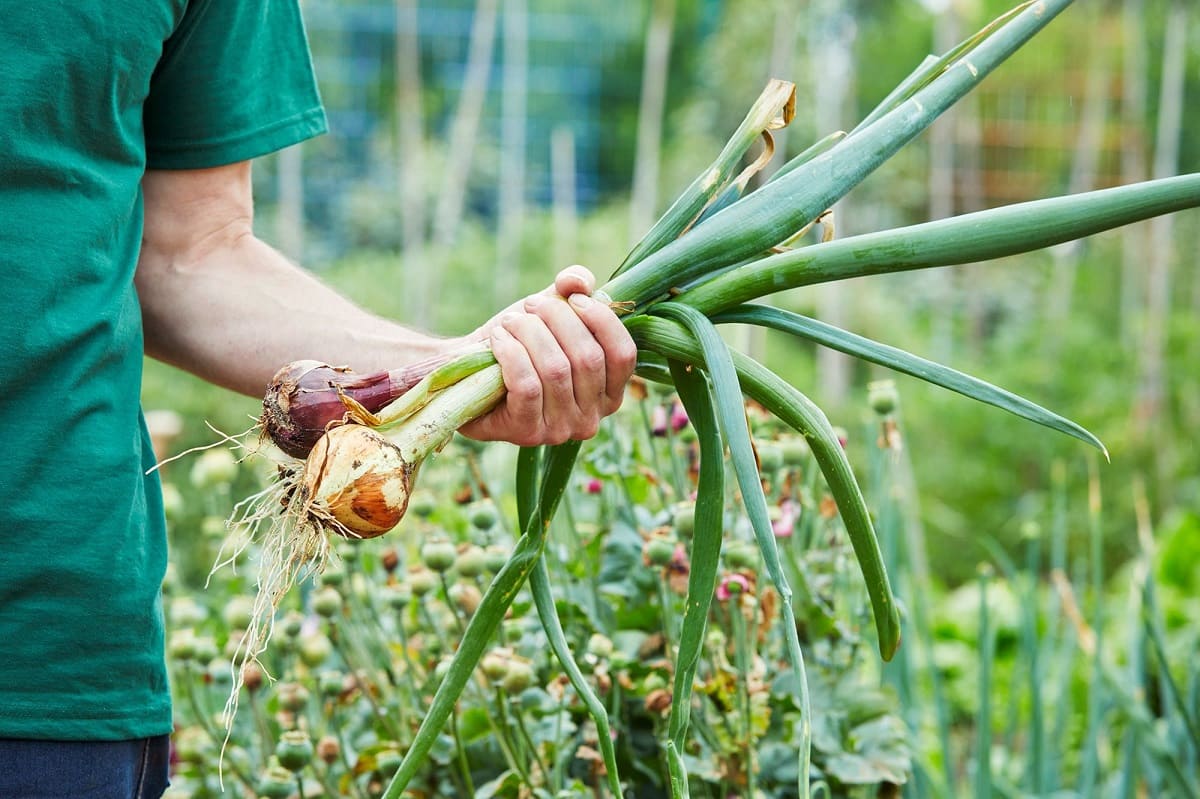

0 thoughts on “How To Store Potatoes And Onions”